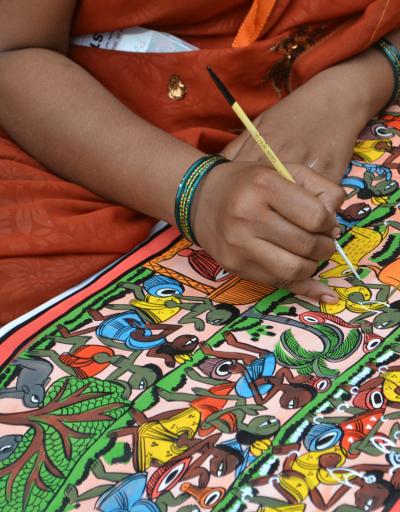
About the office

In time, it incorporated communication programmes, and still later expanded to include education and culture. As part of UNESCO's decentralization policy in 2001, UNESCO New Delhi was designated as a Cluster Office and is a platform for delivery of activities in all areas of UNESCO’s competence, namely, education, the natural and social sciences, culture, communication and information.
The 215th session of the UNESCO’s Executive Board, approved the new organization of the field network, based on a two-tier System, and comprising multi-sectoral regional offices, national offices, as well as liaison offices. Under this overall Strategy on UNESCO’s presence in the world, in 2023, UNESCO Cluster Office in New Delhi is now a UNESCO Multi-sectoral Regional Office covering Bangladesh, Bhutan, India, Maldives, Nepal and Sri Lanka.
It implements a biennial Cluster programme that is integrated within itself and with the overall goals of the Organization. This is done through a fundamental operating principle - consultation and consensus with the National Commissions of the Member States, Regional Bureaus, civil society representatives, and other stakeholders and partners.
As a symbol of the value that India attaches to its relationship with UNESCO, the Government of India presented the organization with its present premises in the heart of New Delhi’s prestigious diplomatic area. Designed by renowned artist Mr Satish Gujral, the building is a beautiful medley of creative artworks and functionality.
UNESCO Policy on the Protection from Sexual Exploitation and Abuse (PSEA)
UNESCO is committed to applying a ‘zero tolerance’ policy towards acts of sexual exploitation and abuse by its personnel. In 2003, the United Nations Secretary-General issued a Bulletin on “Special measures for protection from sexual exploitation and sexual abuse” (ST/SGB/2003/13) (“the Bulletin”).
To support system-wide implementation of the zero-tolerance policy, the Director-General has decided to adopt the standards of conduct and provisions on protection from sexual exploitation and abuse (PSEA) set by the Bulletin, adjusted as necessary, to be applied by UNESCO personnel.
The Administrative Officer (c.park@unesco.org) is the PSEA Focal Point at UNESCO New Delhi.
Partnerships
Partnerships are firmly embedded in UNESCO’s way of working. These include the government, civil society, NGOs, IGOs, private sector, ASPnet and academia.
In fact, UNESCO is the only UN Agency to have a system of National Commission, which form a vital link between civil society and the organization.
How UNESCO New Delhi engages with its partners
Combining expertise for the implementation of various programmes at national, regional and global levels
- Direct financial contributions, as well as in-kind contributions such as personnel, volunteers and equipment
- Coordination and consultation on ongoing programmes relating to the development of policies, standards and norms
- Sharing networks and assisting in UNESCO’s outreach with regard to its advocacy work
- Providing, and benefitting from technical assistance and other advisory services
Management Team













